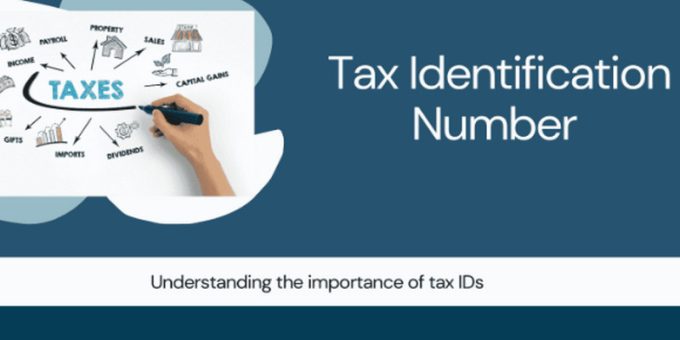
The Internal Revenue Service (IRS) processes more than 150 million individual and business tax returns annually. An accurate tax number is a crucial characteristic that all processed returns share.
It is not possible to complete taxes quickly without tax IDs. The significance and meaning of tax numbers are explained in this guide.
What is the purpose of tax IDs?
Use of taxpayer identification numbers allows for easy and rapid identification by state tax offices and the IRS. Federal tax IDs typically come in two forms: SSNs and EINs. Additional tax numbers that might be pertinent to some people or companies include state tax IDs and individual taxpayer identification numbers (ITINs).
What situations call for a tax ID?
With a tax number, all of a person’s or business’s tax documents, including returns, may be quickly linked to that specific individual or entity. We can’t ensure that sensitive information like names, DOBs, and SSNs is completely unique, which is why they’re essential.
As an example, having a first, middle, and last name that is identical to another’s is quite common. As a result, the Internal Revenue Service (IRS) cannot determine the taxpayers’ identities using that information. Because each tax number is distinct, using them is a simple way to expedite processing and reduce the possibility that the incorrect individual or business is linked to a tax file or associated document.
To what end does your tax ID serve?
Tax numbers have many purposes. Preparing one’s taxes is one of its most famous uses. To properly assign a tax return or other filing document to an individual or business, a unique tax number must be entered.
But there are many other areas of life where tax data are vital. If you want to perform specific activities with your money or income, for instance, you’ll typically need your tax ID.
You need a tax number to open a new bank account. The details of this number will differ depending on the sort of account you’re opening. Financial institutions typically demand a Social Security number or Individual Taxpayer Identification Number (ITIN) from prospective account holders. Although an Employer Identification Number (EIN) is normally needed to open a business bank account, some banks may let sole proprietors use their Social Security number instead. The same holds true for tax IDs; they are usually requested on loan and credit applications from both people and companies.
A valid tax ID is also necessary while applying for jobs. In order to execute payroll, companies need workers’ Social Security numbers. This will allow them to properly credit the right people for any taxes received and issue the right W-2s when tax season comes around. People who work as contractors, freelancers, or are otherwise self-employed need tax IDs so they can keep track of their money and, if needed, get a 1099 at year’s end.
An Employer Identification Number (EIN) may be required in order to incorporate a specific type of business entity or to obtain a business license. A number of business licenses also necessitate these.
Accurate tax information is critical for handling a variety of tasks. Obtain the required ones without delay if you are missing them.
